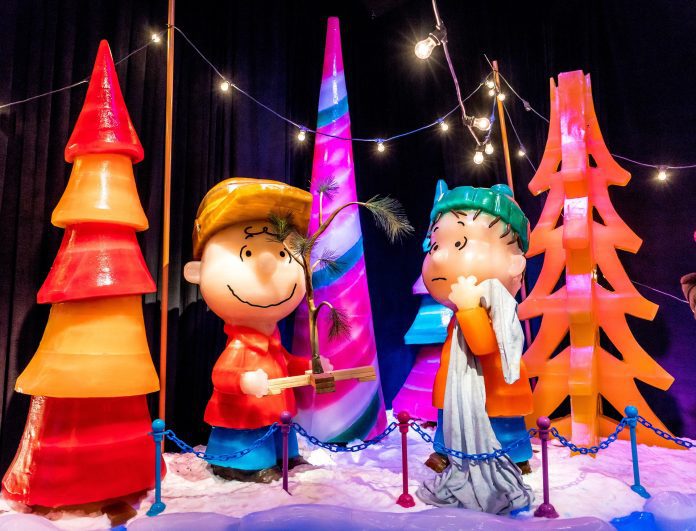For only the second time in 57 years, A Charlie Brown Christmas – the most beloved of all animated Christmas specials – will not air on network television. This groundbreaking special forever changed how networks treated all specials and introduced new and lasting songs, as well as Christmas icons. Historically speaking, however, this special was not without its controversy and has continued to be so in recent years.
In 1965, CBS made a bold move to air an animated Christmas special. Although this is common today, at the time, specials were not a thing, at least at CBS. The networks did not want to interrupt their viewers weekly schedules. Three things changed to clear a path for the special. First, in 1964, NBC aired the stop-motion special Rudolph the Red-Nosed Reindeer to positive reviews. Second, CBS made a change of leadership. Lastly, and most importantly, Coca-Cola came on board and wanted to sponsor a family friendly Christmas special. Suddenly, Charles Schulz and his team at CBS had six months to put the show together.
Schulz had a couple demands. First, he wanted the TV show to accurately portray his comic strip; and, he insisted it show the true meaning of Christmas. When asked why the Christmas message was so important, he answered, “If we don’t do it, who will?” Just three years earlier, in 1962, the Supreme Court had ruled in Engel v. Vitale that school-led prayer in schools was unconstitutional. In the following years, many religious practices were being removed from public spaces. In this environment, Schulz wanted to stand up for his beliefs.
The next issue was the show itself. When CBS first saw it, they thought it was awful. Not only did they think it would bomb, but they worried about killing the Peanuts. Everything seemed wrong. The animation was rough, the music was a jazz soundtrack, there was no laugh track and untrained children were playing the parts which came off unprofessional. As for the story, it was too slow with little to no action, and of course, a two-minute sermon by Linus about the birth of Jesus. Executives in 1965 did not believe American audiences wanted religion in their programs. They considered canceling the special, but Coca-Cola had already given the money and it was listed in the TV guide. Also, Schulz believed in it. CBS decided to go ahead and show the program with the expectation that it would be a onetime airing.
As with so many times when it comes to religion, Hollywood was wrong. A Charlie Brown’s Christmas was a massive hit and was watched by almost half of the nation. While this inspiring show went on to air every year until 2000 when HBO bought its rights, it was not without continuing controversy because of its religious message. Schools across the nation have been banned from showing it and putting on a play based on the TV special. In 2015, controversy even reached the highest office in the land. Before a special celebrating the 50th anniversary of A Charlie Brown Christmas, President Obama had a short clip praising the special and saying, “They teach us that tiny trees just need a little love, and that on this holiday we celebrate peace on Earth and goodwill toward all.” Religious groups attacked the president upset that he did not mention the true purpose of Christmas and arguing that loving little trees was not the message of the Christmas special.
I think the reason this special that aired 57 years ago still causes some controversy today is because from the very beginning it resonated with Americans both young and old, and they want to protect it. The show focuses on an underdog of a kid who, as his friend Lucy said, “Of all the Charlie Browns in the world, you’re the Charlie Browniest,” who was trying to understand the meaning of Christmas. In 1965, just as today, Charlie Brown had come to see the season as a commercial holiday and not one that brought much joy, saying “I almost wish there weren’t a holiday season. I know nobody likes me. Why do we have to have a holiday season to emphasize it?”
The arche of the show happened when Charlie Brown was sent to pick out a tree for the Christmas pageant and he decided on a small scrawny tree that clearly was the Charlie Brown of Christmas trees. After being berated again, Charlie Brown seemingly exasperated asked the universe, “Isn’t there anyone who knows what Christmas is all about?” To which Linus, the sage of the Peanuts responded, “Sure, Charlie Brown, I can tell you what Christmas is all about.” Linus then proceeded to tell the story of Jesus’ birth as recorded in Luke II. Inspired by Linus, the kids all go find Charlie Brown and decorate his little tree showing its true potential. The show is not about small trees. It’s about how a baby born over 2000 years ago in humble circumstances came to bring true joy. It’s about the Master who sees the potential in all of us the way Charlie Brown did with that small tree. It’s not just about a jolly man in red, who intentionally was not in the Christmas special, but “Glory to God in the highest, and on earth peace, good will toward men.”
Thank you for reading Historical Speaking this year. I hope it brought you some joy. From my family to yours, I wish you all a very merry Christmas.
Dr. James Finck is an Associate Professor of History at the University of Science and Arts of Oklahoma in Chickasha. He is Chair of the Oklahoma Civil War Symposium. Follow Historically Speaking at www.Historicallyspeaking.blog.
















